
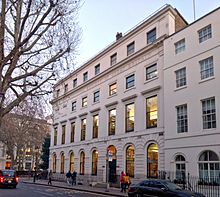

The German Historical Institute London (GHIL) is one of the nine independent academic research institutes of the German Historical Institute (German : Deutsche Historische Institute) that are part of the Max Weber Foundation.



The German Historical Institute London (GHIL) is one of the nine independent academic research institutes of the German Historical Institute (German : Deutsche Historische Institute) that are part of the Max Weber Foundation.
The creation of the institute was the idea of the German archivist Carl Haase in 1968. A German-British Historical Association was founded in 1969 and, after gaining funding by the German government in 1975, the GHIL officially opened on 4 November 1976. [1]
The Institute promotes research on "medieval and modern history, in particular on the comparative history of Britain and Germany, on the British Empire and the Commonwealth, and on Anglo-German relations." [2]
It is located at 17 Bloomsbury Square [3] and includes a public library specialising in German history.
The directors of the Institute have been:

The foreign relations of Angola are based on Angola's strong support of U.S. foreign policy as the Angolan economy is dependent on U.S. foreign aid. From 1975 to 1989, Angola was aligned with the Eastern bloc, in particular the Soviet Union, Libya, and Cuba. Since then, it has focused on improving relationships with Western countries, cultivating links with other Portuguese-speaking countries, and asserting its own national interests in Central Africa through military and diplomatic intervention. In 1993, it established formal diplomatic relations with the United States. It has entered the Southern African Development Community as a vehicle for improving ties with its largely Anglophone neighbors to the south. Zimbabwe and Namibia joined Angola in its military intervention in the Democratic Republic of the Congo, where Angolan troops remain in support of the Joseph Kabila government. It also has intervened in the Republic of the Congo (Brazzaville) in support of Denis Sassou-Nguesso in the civil war.

South West Africa, renamed to Namibia from 12 June 1968 was a territory under South African administration from 1915 to 1990, after which it became modern-day Namibia. It bordered Angola, Botswana, South Africa, and Zambia. During its administration, South Africa applied its own apartheid system in the territory of South West Africa.

Edward Morgan Forster was an English author, best known for his novels, particularly A Room with a View (1908), Howards End (1910) and A Passage to India (1924).
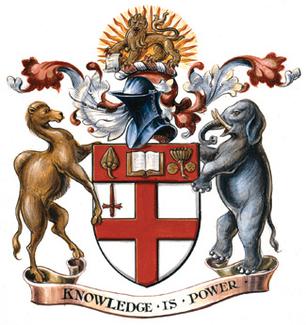
The School of Oriental and African Studies is a public research university in London, England, and a member institution of the federal University of London. Founded in 1916, SOAS is located in the Bloomsbury area of central London.
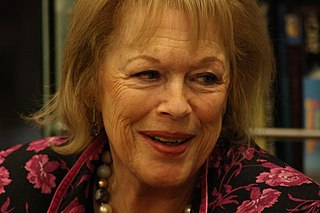
Lady Antonia Margaret Caroline Fraser, is a British author of history, novels, biographies and detective fiction. She is the widow of the 2005 Nobel Laureate in Literature, Harold Pinter (1930–2008), and prior to his death was also known as Lady Antonia Pinter.
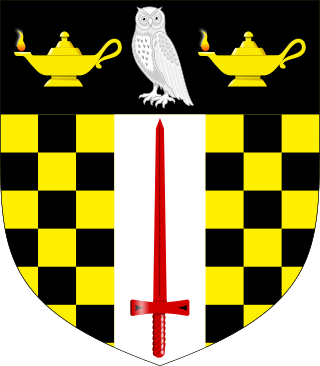
Birkbeck, University of London, is a research university located in the Bloomsbury neighborhood of London, England, and a member institution of the University of London. Established in 1823 as the London Mechanics' Institute by its founder Sir George Birkbeck and its supporters- Jeremy Bentham, J. C. Hobhouse and Henry Brougham- Birkbeck is one of the few universities to specialise in evening higher education in the United Kingdom.

The Royal Institute of International Affairs, commonly known as Chatham House, is a British think tank based in London, England. Its stated mission is "to help governments and societies build a sustainably secure, prosperous, and just world". It is the originator of the Chatham House Rule.

The Warburg Institute is a research institution associated with the University of London in central London, England. A member of the School of Advanced Study, its focus is the study of cultural history and the role of images in culture – cross-disciplinary and global. It is concerned with the histories of art and science, and their relationship with superstition, magic, and popular beliefs.
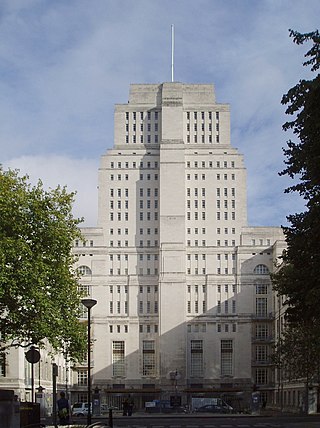
Senate House is the administrative centre of the University of London, situated in the heart of Bloomsbury, London, immediately to the north of the British Museum.

Queen Square is a garden square in the Bloomsbury district of central London. Many of its buildings are associated with medicine, particularly neurology.
The Institute of Historical Research (IHR) is a British educational organisation providing resources and training for historical researchers. It is part of the School of Advanced Study in the University of London and is located at Senate House. The institute was founded in 1921 by A. F. Pollard.
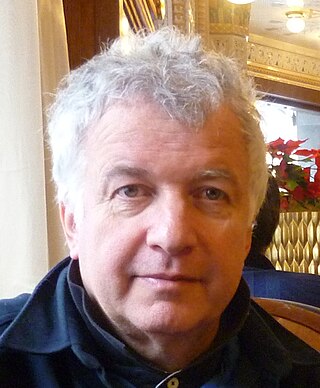
Nicholas Campion is a British astrologer and historian of astrology and cultural astronomy. He is the author of a number of books and currently pursues an academic career.

Dr Williams's Library is a small English research library in Gordon Square, Bloomsbury, London. Historically, it has had a strong Unitarian focus. The library has also been known as University Hall.
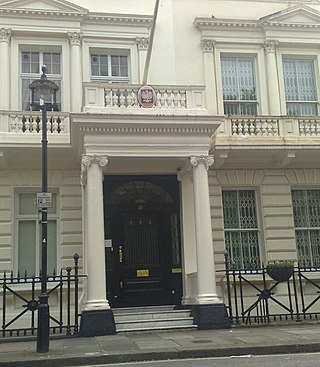
The Polish Institute and Sikorski Museum, known as Sikorski Institute, named after General Władysław Sikorski, is a leading London-based museum and archive for research into Poland during World War II and the Polish diaspora. It is a non-governmental organisation managed by scholars from the Polish community in the United Kingdom, housed at 20 Prince's Gate in West London, in a Grade II listed terrace on Kensington Road facing Hyde Park. It is incidentally part of the same Victorian development by Charles James Freake as the nearby Polish Hearth Club. Although the institute is closer to the commercial centres of Kensington, it is just within the City of Westminster. In 1988 it merged with the formerly independent Polish Underground Movement (1939–1945) Study Trust –.

The Admiralty Research Laboratory (ARL) was a research laboratory that supported the work of the UK Admiralty in Teddington, London, England from 1921 to 1977.

David Haslam Childs FRSA is a British academic and political historian, who is Professor Emeritus of Politics at the University of Nottingham. His research chiefly concerns the modern German state and the field of German studies, and helping the public develop a greater knowledge of the history and politics of the former East and West Germany.
A de facto embassy is an office or organisation that serves de facto as an embassy in the absence of normal or official diplomatic relations among countries, usually to represent nations which lack full diplomatic recognition, regions or dependencies of countries, or territories over which sovereignty is disputed. In some cases, diplomatic immunity and extraterritoriality may be granted.
Malcolm Rex Winsbury was a British journalist and author. He worked for BBC current affairs, the Financial Times and Daily Telegraph, was development director for Nation Newspapers in Nairobi, Kenya, and wrote widely on the press and technology and health issues such as AIDS and cancer.

The Bedford Estate is an estate in central London owned by the Russell family, which holds the peerage title of Duke of Bedford. The estate was originally based in Covent Garden, then stretched to include Bloomsbury in 1669. The Covent Garden property was sold for £2 million in 1913 by Herbrand Russell, 11th Duke of Bedford, to the MP and land speculator Harry Mallaby-Deeley, who sold his option to the Beecham family for £250,000; the sale was finalised in 1918.
Edward Chaney is a British cultural historian. He is Professor Emeritus at Solent University and Honorary Professor at University College London . He is an authority on the evolution of the Grand Tour, Anglo-Italian cultural relations, the history of collecting, Inigo Jones and the legacy of ancient Egypt. He also publishes on aspects of 20th-century British art. In 2003, he was made a Commendatore of the Italian Republic. He is the biographer of Gerald Basil Edwards, author of The Book of Ebenezer Le Page which he succeeded in publishing following the author's death in 1976. This has since been recognised as a twentieth-century classic.